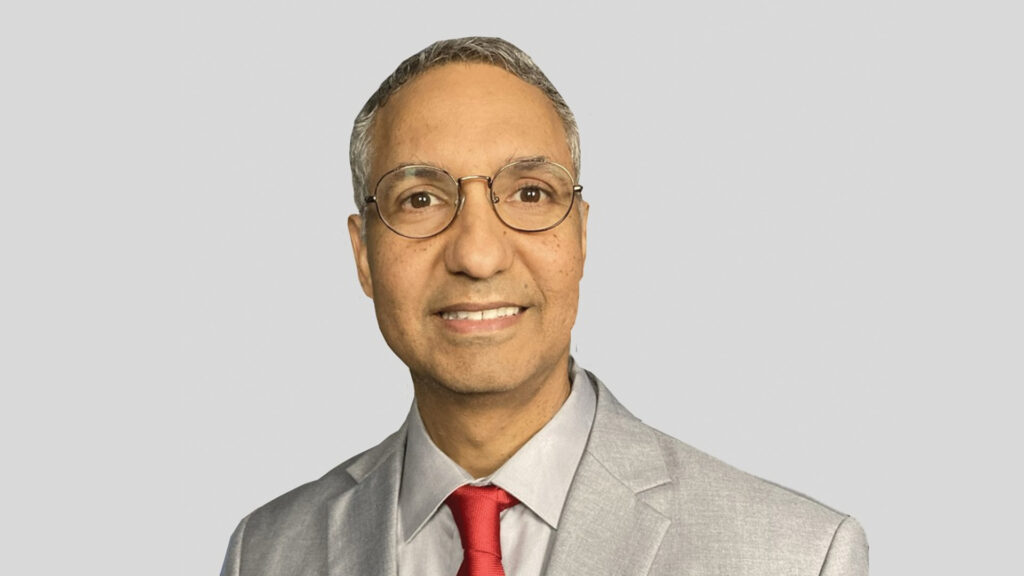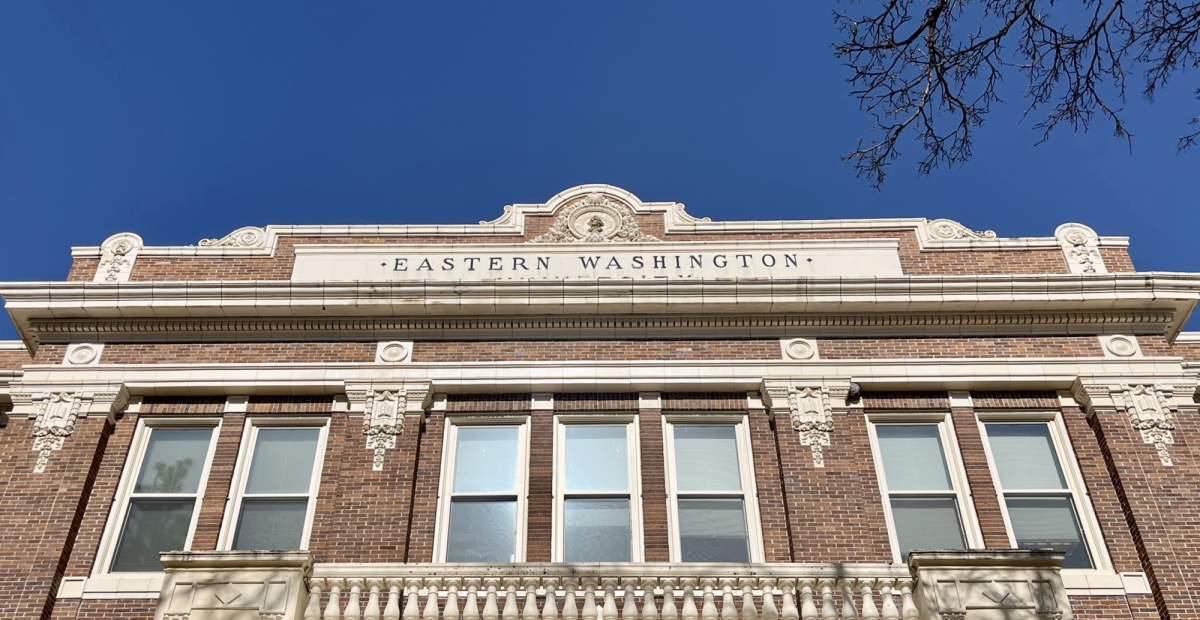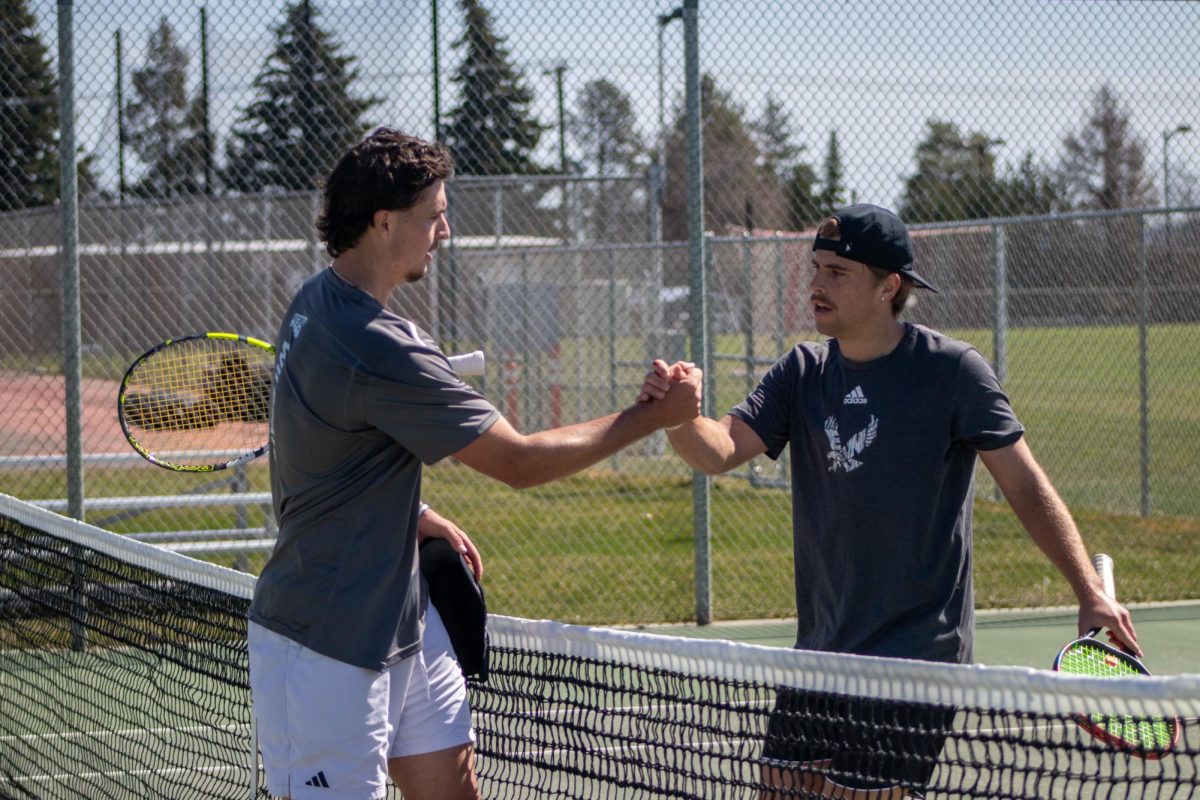The life of an EWU international student
May 29, 2014
By Rebekah Frank

Molitor Silva noticed various differences between Brazil and America, namely the education systems. She said the school system in Brazil is focused on getting students to college instead of teaching them how to think for themselves.
When Molitor Silva was in Brazil, she attended a private school. She said students who went to public school did not learn a lot because the teachers do not care.
“Usually if you want your children to have a good education, you send them to a private school,” said Molitor Silva.
Molitor Silva said the school system is better in the U.S. than in Brazil. Students in Brazil spend their time in high school preparing for a huge test required to go to college cost free.
Students who fail or do not take the test have to pay for their university education. However, Molitor Silva said public universities are as bad as the public high schools.
“When I came [to America], I felt like the teachers — they kind of taught me how to think. They didn’t just throw information at me, but they gave me something and then they had me think about it. I liked that better because that way I could have my own opinion about things and I could be an individual, not just one other student that is learning a ton of things,” said Molitor Silva.
Molitor Silva wanted to come to America for school when she was 16. Her dad lived in America for a year when he transferred to California for his job. He was easier to convince than her mom, according to Molitor Silva. After a while, Molitor Silva convinced her mom to let her go.
“I grew up watching movies, and I would always look at U.S. high schools, and it looked like the most fun thing in the world, so I decided to do an exchange program,” said Molitor Silva.
During her junior year of high school, Molitor Silva participated in the foreign exchange student program and was placed with Dina Kieffer and her family, who lived in a town of 400 people.
“We were very happy to have [Molitor Silva] join our family from the first day she arrived,” Kieffer said.
When Molitor Silva came to the U.S., she pictured high school being like the Disney Channel show, “Lizzie McGuire.” She soon realized it was different and would have a hard time adjusting.
“Back home, we are very affectionate people, and people are just more touchy. … Then, when I came here, I didn’t have that. You’re alone. You don’t know anybody. Everything is different. They are all speaking a different language and sometimes you just want a hug,” said Molitor Silva.
When Molitor Silva was in class, she had a hard time following what the teacher was explaining.
“There was this one time the teacher mentioned something about a quiz, and I didn’t understand that and then the next day everyone is taking a quiz. I’m like, ‘What is this? What is a quiz?’ and then the teacher tells me to close my notebook and do that, and I am like, ‘I didn’t even study, I don’t know what to do here,’” said Molitor Silva.
Kieffer said while Molitor Silva did struggle at first, but she learned English quickly, making communication easier. Kieffer said that Molitor Silva was open to trying new things and was willing to help her host family.
“She helped do chores when needed and made friends very easily. She tried new things, food and sports and was good about it,” Keifer said.
Molitor Silva is so accustomed to American culture that she has to readjust to Brazilian culture when she goes home.
“When I go home and people are hugging me all the time and kissing my cheeks, I feel weird. When my family calls me, I have a hard time because now I translate [from English] to Portuguese. … Sometimes I will start a sentence in Portuguese and then I’ll suddenly say ‘because’ and then continue in English,” said Molitor Silva.
She has overcome stereotypes both in America and Brazil.
“There was this one time I was trying something new, I think it was an original American hot dog, and I was eating it and I really liked it. So I kept talking about it, and this girl turns to me and she is like, ‘Do you have food in your country’ and I said, ‘Um yeah, we all need to eat,’” Molitor Silva said.
Molitor Silva said stereotypes Brazilians have about Americans are absurd.
“My uncle thought there were no stoves in the U.S., only deep fryers in the kitchen,” said Molitor Silva.
She wants to change stereotypical ideas, and helping people from other countries is her dream career. Molitor Silva said she wants to work for the Brazilian embassy when she graduates.
“I want to be involved in something international, I feel like I would be good at that,” said Molitor Silva.







